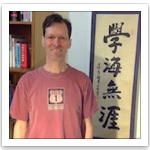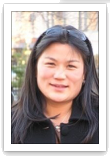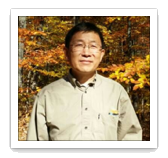

The Wenlin project began in 1987 (year of the rabbit), when Wenlin's founder and president, Tom Bishop, started developing software for learning Chinese and after a few years made prototypes available for field-testing at a number of universities. Elisabeth Nuboer, Mark Roblee, and Richard Cook joined the project in the mid 1990s. We have been incorporated in California since 1996, and published our first product, Wenlin Software for Learning Chinese, version 1, in 1997.
Meanwhile, in 1990 Victor Mair of the University of Pennsylvania had forged an agreement with a number of widely dispersed scholars to compile an alphabetically based Chinese-English dictionary. This was the genesis of the ABC Dictionary project. In 1992, John DeFrancis, a distinguished scholar of Chinese at the University of Hawaii (UH), became the chief editor. (DeFrancis had already formulated the essential idea of the dictionary many decades earlier in his 1949 book, Nationalism and Language Reform in China.) The project was hosted by the UH Center for Chinese Studies, whose Associate Director, Prof. Cynthia Ning, became one of the Editorial Associates. Grants were provided by the US Department of Education, the UH Office of Technology Transfer and Economic Development, and others. The ABC Chinese-English Dictionary was first published by UH Press in book form in 1996. The relation between the Wenlin and ABC projects began in 1997. Wenlin Institute and the University of Hawaii made a licensing agreement to combine the ABC Dictionary in electronic form with the Wenlin software. In 1998, Wenlin version 2 was published. It included the original ABC Dictionary. Bishop joined the ABC team, which, still under the leadership of DeFrancis, was hard at work on an enlarged and improved version of the dictionary. Wenlin and ABC became increasingly related, to the extent that they can now be considered in many respects as a unified project.
In the 21st century we've gone on to produce and publish more dictionaries, including: the ABC Chinese-English Comprehensive edition, with over 200,000 entries; the bidirectional ABC English-Chinese/Chinese-English Dictionary, edit by John DeFrancis and Zhang Yanyin; the ABC Dictionary of Proverbs (Yànyǔ) edited by John Rohsenow; and more software, including: Wenlin Software for Learning Chinese, version 4, and an innovative technology called Wenlin Character Description Language (CDL) which has played a significant role in the development of the Unicode Standard for universal character encoding. Wenlin Institute is an associate member of the Unicode Consortium.
Some of the many people who have contributed to Wenlin and ABC are listed in the acknowledgments for the Wenlin user's guide.
Our customers include universities, schools, various institutions (e.g., the US foreign service), and individual teachers, students, and scholars around the world, as well as other software developers who license our dictionaries and technologies. We have received grants from the National Endowment for the Humanities for our work on CDL and translating Shuōwén Jiězì.
In February 2015, we changed our status from an ordinary corporation to a Social Purpose Corporation with the mission defined below, and added “SPC” to our name.
Our Articles of Incorporation include the following mission statement:
The specific purpose of this corporation is to help people learn languages, primarily Chinese and English; promote intercultural education, understanding, appreciation, peace, cooperation, unity, and diversity; and develop linguistic and educational sciences, technologies, and techniques. For this purpose, the corporation shall:
- support the current and future users of Wenlin Software for Learning Chinese and the ABC series of dictionaries, by maintaining, expanding, improving, licensing, and publishing these works, and other educational and scholarly works;
- uphold the integrity, reputation, and principles of these works, adhering to the principle of using both Pinyin (alphabetical writing) and Hanzi (Chinese characters in all of their various forms) for learning Chinese, and striving for the highest standards of accuracy, correctness, scholarship, reliability, fairness, utility, and quality;
- put dictionaries and other learning materials online in such a way that qualified contributors around the world can collaborate to make improvements and corrections to the central repository;
- attract, support and cultivate a team of skilled workers, including top experts in lexicography, linguistics, programming, and education;
- teach the skills used by our expert team, enabling future generations to continue our work.
Annual Management Discussion and Analysis

|

|

|

|

|

|

|

|